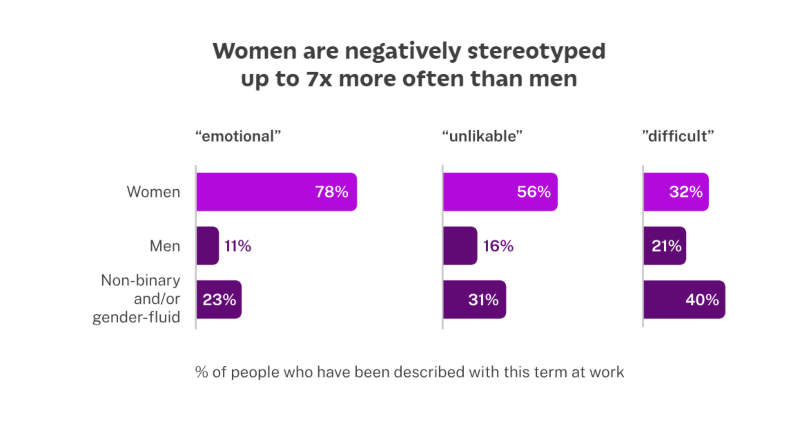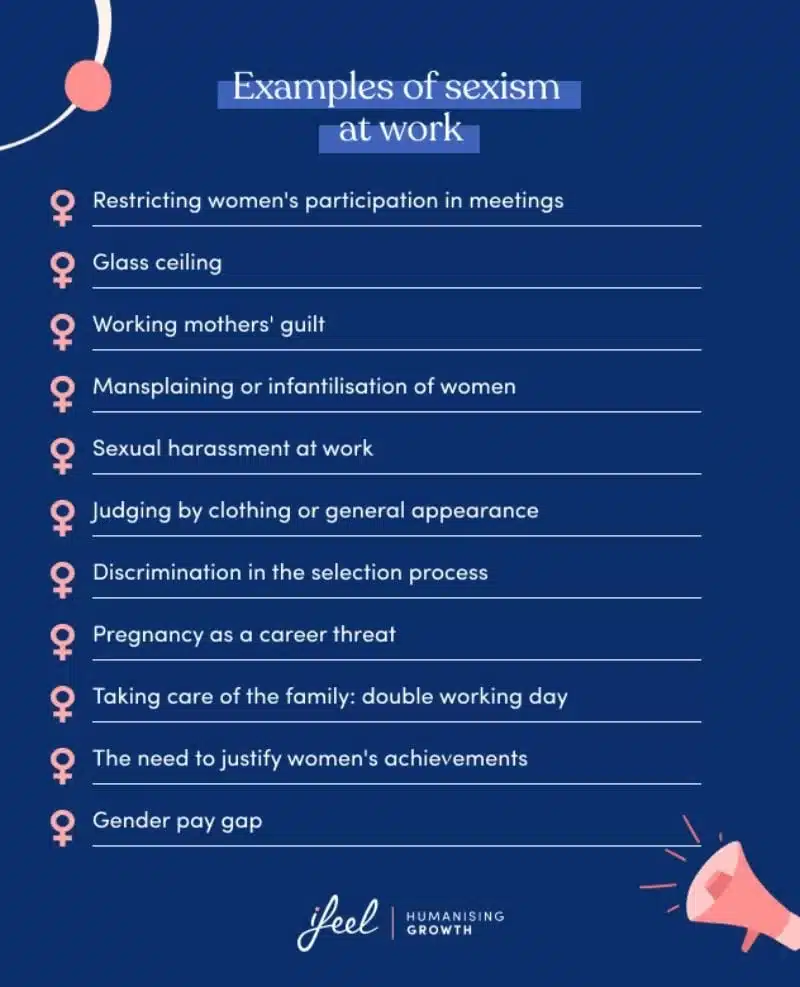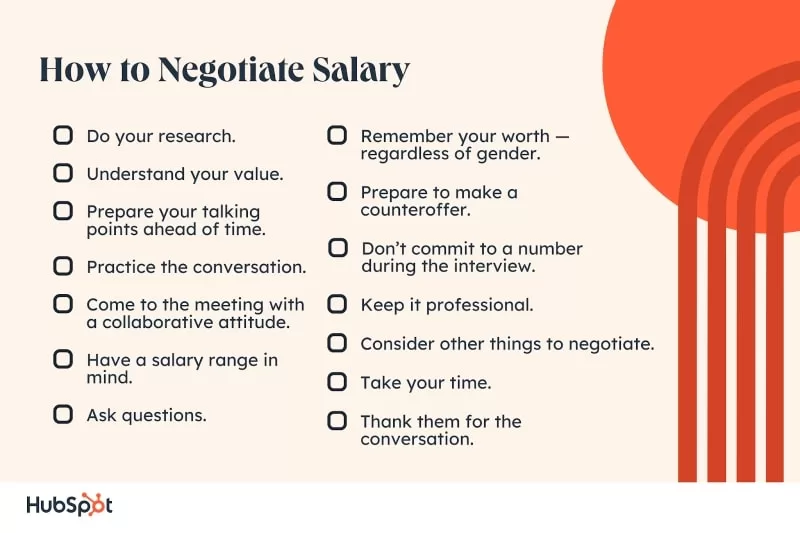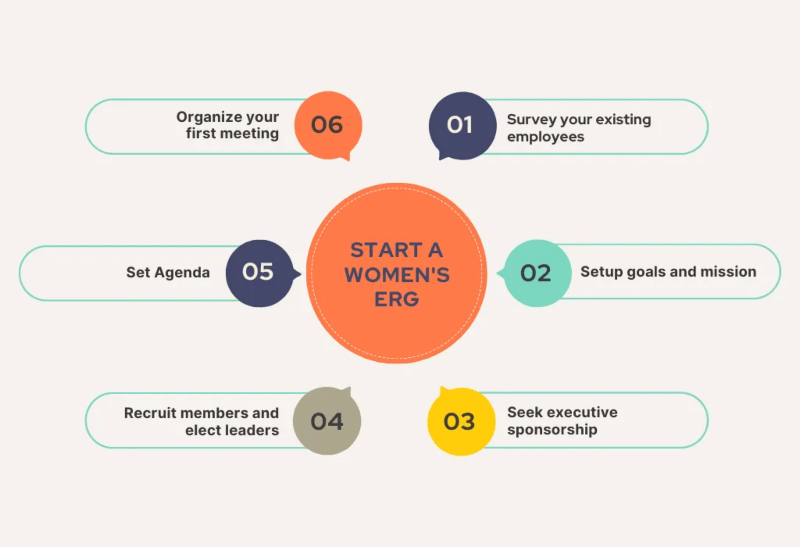Decentering (dēˈsen(t)əriNG; noun) Displacement from a central position, especially of the individual human subject from a primary place or central role. (Oxford Language Dictionary)
Decentering men in the workplace is about reclaiming your power, ensuring equal opportunities, and dismantling structures that prioritize male dominance.
In this blog post, we will explore actionable steps to help you decenter men in your professional life, answer frequently asked questions (FAQs), and provide helpful tips for beginners.
Why Should We Decenter Men in the Workplace?
Women often struggle with being undervalued or overshadowed by their male colleagues in professional settings. By decentering men, women can create more balanced and equitable work environments.
Historically, men have dominated professional spaces due to their earlier entry into the workforce. This has often resulted in male employees being taken more seriously than their female counterparts.
By decentering men, we shift focus away from this traditional power dynamic and foster environments where women’s contributions are equally valued.
A study conducted by Saygin and Knight demonstrated that male peer evaluators tend to give higher scores to male students compared to equally performing female students. This bias was more pronounced in male-dominated fields where evaluators were predominantly men.
New study of performance reviews from HR tech company Textio states that women are 1.4 times more likely to receive critical subjective feedback, which is often vague and less constructive compared to the feedback men receive.
For instance, women may be described as needing to “be more confident,” while men receive praise for their natural abilities.
Research from Textio also revealed that women are disproportionately described using personality traits rather than objective performance metrics.
For example, 56% of women reported being labeled as “unlikeable,” while only 16% of men received similar feedback.
The following infograph is from the Textio website.


Additionally, many women hesitate to take full credit for their work, fearing they will be labeled as “pushy” or “arrogant.” This reluctance leads to missed opportunities for recognition and advancement.
Women frequently make sacrifices for their family, such as moving for their partner’s job or being expected to fulfill caregiving roles at home. Society often shames women for prioritizing their careers over family life, reinforcing the narrative that a man’s career holds more weight.
The “trad wife” trend is now all over social media. The following are links to a few articles on the trad wife phenomenon.
https://globalnews.ca/news/10681509/trad-wife-trend-social-media-explainer/
On a deeper level, men may resist this shift in power because they fear competition from women.
Many have grown up with the belief that they hold a special place in the workforce, but as women excel and prove themselves more efficient, this dynamic is challenged.
For decentering men in the workplace, we must recognize the systemic barriers women face and actively work to dismantle them.
Let’s look into 8 ways of decentering men in the workplace.
1. Limit Taking on Additional Responsibilities Without Compensation
Are you often asked to take on extra tasks or responsibilities at work without being compensated for it? If yes, you’re not alone.
Many women find themselves “volunteering” for extra work without realizing they deserve to be compensated or recognized. Make sure that any extra responsibility comes with credit or additional pay.
Don’t let unpaid labor weigh you down. Let’s look at other ways to set boundaries and decenter men.
2. Avoid “Mothering” Male Colleagues
Men sometimes rely on “weaponized incompetence” to pass off their responsibilities. Are you unknowingly enabling this behavior?
Helping your male colleagues with their tasks might feel harmless at first, but it can lead to imbalance and unfair expectations. Only assist them when it’s necessary, not out of habit or obligation.
The following illustration from the Cleveland Clinic explains weaponized incompetence.

3. Call Out Sexism in Real-Time
Have you ever witnessed or experienced subtle sexism at work and hesitated to speak up? Silence can reinforce harmful behaviors.
It’s crucial to address sexism the moment it happens. Letting it slide sends a message that it is acceptable. If a coworker or manager says something sexist, speak up professionally but assertively.
Report repeated instances to HR, and if the company culture fails to support equality, consider looking for opportunities elsewhere. You deserve to work in an environment where you’re valued and respected.
The following infographic from ifeel presents 12 examples of sexism in the workplace.

Don’t tolerate subtle or overt sexism. Companies with ingrained sexist cultures are not the right place for growth and progress. In such cases, pursuing entrepreneurship or finding inclusive workplaces might be the best option.
Here are some resources on addressing workplace sexism:
https://projectwhen.org/resources/combating-gender-discrimination-in-the-workplace/
https://www.forbes.com/sites/sianbeilock/2020/01/07/how-to-address-subtle-friendly-sexism-at-work/
4. Demand Fair Compensation and Promotions
Do you feel like you’re doing the same work as your male colleagues but receiving less recognition or pay?
If your contributions aren’t being acknowledged, it’s important to be proactive. Make a detailed list of your achievements, contributions, and added value. Use this to build a strong case for the raise or promotion you deserve.
Don’t shy away from negotiation—statistics show that women often hesitate to negotiate, but it’s crucial to demand what you’re worth.
Documenting your successes and knowing your value is key to effective negotiations. Companies are more likely to respond when you can present data showing your impact on the business.
The following infographic from Hubspot presents how to negotiate salary.

Here are some guides on how to negotiate salaries:
https://www.themuse.com/advice/how-to-negotiate-salary-37-tips-you-need-to-know
https://blog.hubspot.com/marketing/negotiate-salary
https://online.hbs.edu/blog/post/salary-negotiation-tips
5. Ask for Help or Mentoring If You Need It
Struggling to manage a heavy workload? Asking for help doesn’t make you less capable—it makes you more effective.
It’s essential to communicate when you need assistance. Whether you’re overwhelmed by responsibilities or seeking advice on advancing your career, asking for help is a strength, not a weakness. Reach out to colleagues or find a mentor who can guide you.
Having a mentor can provide you with insights that fast-track your career growth. It also fosters a supportive work culture where women help each other rise.

While receiving mentorship is valuable, it’s equally important to mentor and uplift other women in the workplace.
6. Help and Mentor Women Subordinates
Women who help each other succeed in creating more inclusive and empowering workplaces.
Take time to mentor women in your workplace. Offering advice, confidence boosts, and career guidance helps create a more supportive environment.
By fostering the next generation of women leaders, you contribute to dismantling male-dominated structures.

Here are some guides on mentoring women in the workplace:
https://www.togetherplatform.com/blog/7-steps-to-support-female-mentorship-at-work
https://www.togetherplatform.com/blog/women-mentorship
Creating a culture where women lift each other up increases everyone’s chances of success. Mentoring fosters confidence and solidarity, which are key in challenging male-dominated environments.
In addition to individual mentorship, creating formal support networks can further empower women in your office.
7. Create a Support Group for Women in the Workplace
Feeling isolated or unsupported at work? You’re not alone—there’s power in numbers.
Establishing a women’s support group provides a safe space to discuss challenges, share resources, and collectively push for change. These groups can offer emotional support, career advice, and networking opportunities.
The following infographic from Goodera presents how to create employee resource groups for women.

Support groups help foster unity and strengthen women’s voices in traditionally male-dominated spaces.
They also provide a platform for addressing workplace challenges as a collective force. With strong support and resources, it’s important to also familiarize yourself with the rights that protect you in the workplace.
8. Be Aware of Your Rights in the Workplace
Do you know your legal rights in the workplace? Being informed is your first line of defense.
Familiarizing yourself with workplace policies and laws protecting women is essential. Knowing your rights helps you address discrimination or harassment, and can guide you through difficult situations. Keep copies of company policies and understand how to report issues if necessary.
In case of discrimination or harassment, knowing the laws that protect you can make a huge difference. Use this knowledge to advocate for yourself and others, ensuring your workplace remains a safe and inclusive environment.
By advocating for yourself and supporting others, you play a vital role in decentering men and creating an equitable workplace.
Here are some resources on legal rights in the workplace for women:
https://womensrightsny.com/eight-laws-protect-women-workplace/
https://lawbhoomi.com/female-rights-in-the-workplace-in-india/
FAQs About Decentering Men in the Workplace
1. What are the benefits of decentering men at work?
Decentering men allows women to claim equal opportunities, respect, and space. It can lead to greater job satisfaction, professional growth, and a healthier work-life balance.
2. How can I start decentering men at work without seeming “difficult”?
You can start decentering men in small ways by setting boundaries, requesting fair compensation, and supporting other women in the office.
Decentering men doesn’t have to be confrontational; it can be as simple as asserting your value in conversations and negotiations.
3. What if the workplace culture is inherently sexist?
In such cases, it may be worth considering a career change to a more inclusive company. In the meantime, advocate for changes in company policies and connect with like-minded colleagues to seek collective action.
4. How do I handle being labeled as “aggressive” or “pushy”?
If you face such labels, know that these often stem from stereotypes about women. Stand firm and continue advocating for yourself. Highlight your achievements and the objective value you bring to the table.
Conclusion
Decentering men in the workplace means creating balance, equality, and fairness. By setting boundaries, demanding recognition, and supporting your fellow women, you can contribute to dismantling the systems that privilege men.
Additional resources:
https://www.bill.com/blog/inclusive-workplace-for-women
https://charliestoolbox.medium.com/decentering-men-why-you-need-to-let-go-of-men-25f3a5dd2da2
https://www.charliestoolbox.com/post/how-to-decenter-men
https://sasforwomen.com/the-decisive-value-of-decentering-men-from-your-life/


